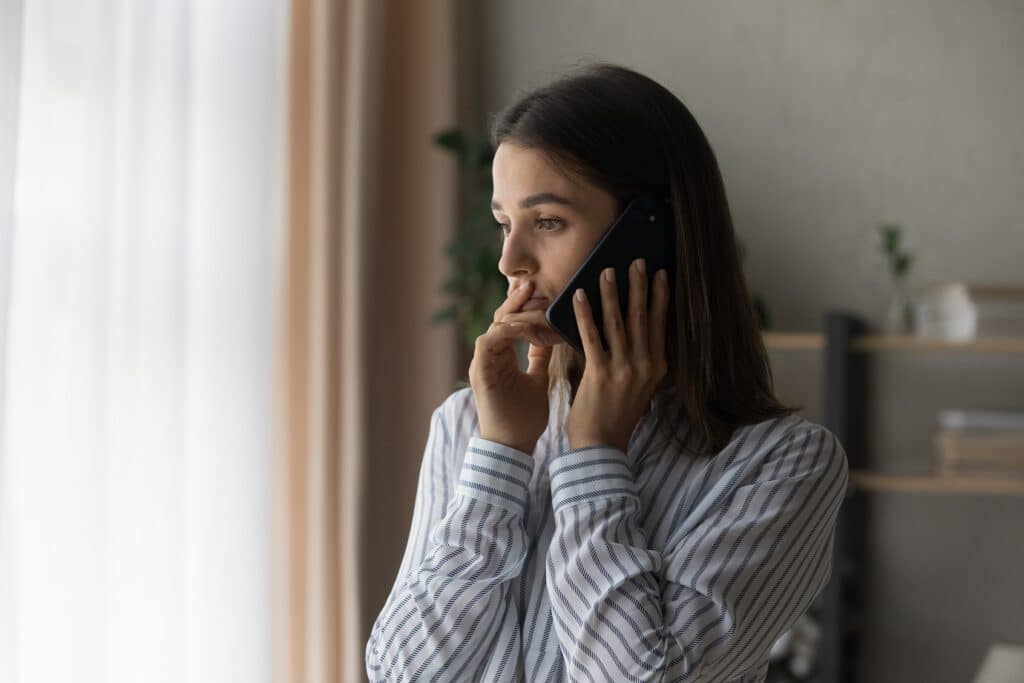Women in Australia face higher rates of mental health conditions compared to men, with factors like the unpaid care load, homelessness, pregnancy and domestic violence all adding unique challenges to the equation.
In their lifetime, women are more likely to experience depression and anxiety than men, with around 1 in 6 women having depression and 1 in 3 women having anxiety. Women also experience post-traumatic stress disorder and eating disorders at higher rates.
In a 2023 Women’s Agenda survey, results showed 77 per cent of women believe they may have experienced burnout over the past 12 months. And when it comes to housing security now and in the future, 52 per cent of women worry about their personal situation.
Likely resulting from an increased mental load, 64 per cent of women reported they don’t believe they are getting enough sleep as well.
In honour of ‘R U OK Day’ today in Australia– a national day of mental health action–we’ve put together a list of some of the leading support services for women’s mental health in Australia.
Liptember Foundation
The Liptember Foundation is raising awareness and funds for women’s health through lipstick. Since 2010, the “Liptember” flagship fundraising campaign has encouraged people to wear lipstick throughout September, raising over $12 million to date and funding a wide range of diverse, women’s mental health outcomes.
One in two women in Australia are facing a mental health issue and more than half of these women aren’t seeking help, according to The Liptember Foundation’s 2023 Annual Report, launched in June this year.
Speaking with Women’s Agenda, CEO and co-founder of the Liptember Foundation, Luke Morris said “there’s so much more that needs to be done.”
“Men and women are inherently different, and women face really unique societal and biological challenges in life that can significantly impact their mental health.”
Perinatal Anxiety & Depression Australia (PANDA)
Perinatal mental health challenges are serious and can come with a lot of stigma, despite one in five new mums being affected by perinatal depression and anxiety each year.
That data comes from PANDA, Australia’s only National Perinatal Mental Health Helpline for individuals, their families, support people and health care providers.
The not-for-profit supports the mental health of parents and families during pregnancy and in their first year of parenthood, with 2022 data showing they saw a 23 per cent increase in people seeking support following the Covid-19 pandemic.
Speaking to the importance of the organisation’s support, CEO of PANDA Julie Borninkhof said: “Mothers are telling us that they used to feel they had to do it all by themselves and letting people help them meant they were failing as a mother. That often leads to burn out, and not being able to be as present as they want to be for their children.”
The Pink Elephants Support Network
The Pink Elephants Support Network says that when a mother elephant loses her baby, the other elephants stand in a circle around her, allowing her all the time she needs to grieve and mourn.
That’s exactly what this not-for-profit aims to do, advocating for the 40 per cent of Australians who experience barriers to support after their early pregnancy loss.
Founded in Sydney in 2016, Pink Elephants has been providing the latest resources, information and peer-support for anyone impacted by early pregnancy loss. They use evidence, empathy, connection and a unique digital-first approach to offer specialist support.
Co-founder and CEO of Pink Elephants, Samantha Payne says: “Despite over 100,000 Australians experiencing this profound physical and emotional health issues each year, early pregnancy loss is continually minimised and ignored when it comes to ongoing government funding, research and formal support pathways.”
Butterfly Foundation
The Butterfly Foundation is the national charity for all Australians impacted by eating disorders and body image issues. They provide evidence-based support services, treatment and resources.
They also operate a National Helpline that includes support over the phone, via email and online, reaching 20,000 people each year.
Research has shown women and girls are more affected by eating disorders, with cultural factors like objectification and early sexualisation contributing to the ongoing issue.
A massive 30 per cent of girls show signs of disordered eating as well, according to a US study.
Here in Australia, a report from The ABC’s Four Corners, showed some hospitals have recorded an 80 to 104 per cent increase in children with anorexia since the pandemic started.
The Butterfly Foundation estimates that more than 1 million Australians have an eating disorder and less than a quarter are getting treatment or support.
If you or someone you love needs support:
– PANDA Helpline on 1300 726 306 (9am-7:30pm Monday-Saturday) or panda.org.au
– Lifeline: 13 11 14 (24/7) or lifeline.org.au
–Butterfly National Helpline on 1800 33 4673


